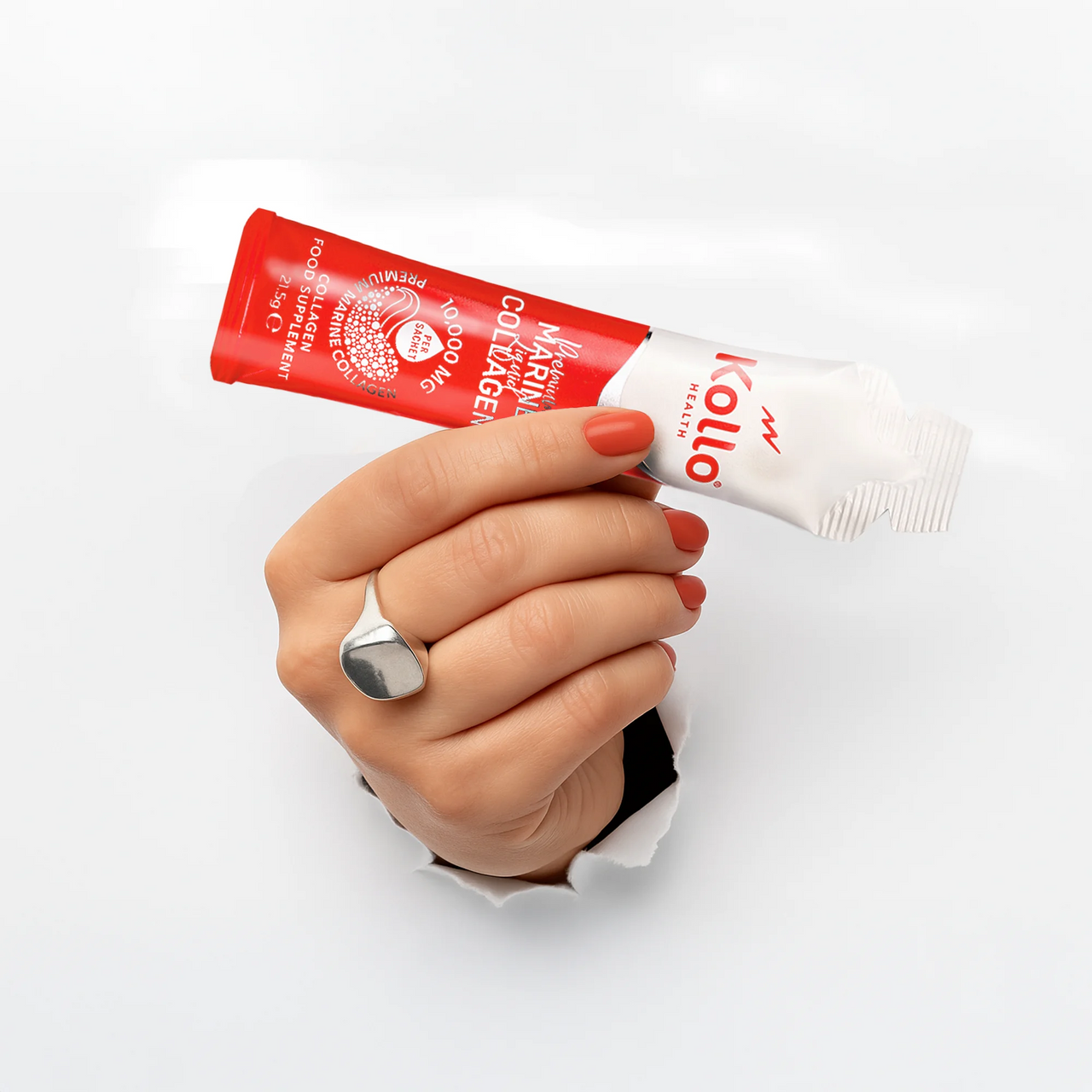Menopause is a natural and significant transition in a woman’s life, marking the end of her reproductive years. This phase typically occurs between the ages of 45 and 55 and is characterized by a variety of physical and emotional changes as the body adjusts to decreased hormone levels, particularly estrogen and progesterone. Understanding menopause is essential for women navigating this journey, as it can significantly impact their quality of life. Symptoms can vary widely, from hot flashes and night sweats to mood swings and memory issues. These changes can lead many women to consider supplements as a means of managing their symptoms and promoting overall health during this transformative period. In this blog, we will explore the intricacies of menopause, common challenges, and how targeted supplements can play a vital role in alleviating discomfort while enhancing well-being.
What is menopause, exactly?

Menopause is a significant life stage that all women go through, marking the end of their reproductive years. It’s defined as the point in time 12 months after a woman’s last menstrual period, typically occurring between the ages of 45 and 55. During menopause, the body reduces the production of hormones like estrogen and progesterone, causing a variety of physical and emotional changes. The hormonal drop-off leads to symptoms that vary in intensity, such as hot flashes, night sweats, sleep disturbances, and mood swings. Understanding the biological changes associated with menopause can empower women to make informed decisions about symptom management and the role of supplements. Being well-informed about menopause enables women to better understand their bodies and evaluate treatment options that best meet their needs.
Common Symptoms and Challenges
Menopausal symptoms are often a combination of physical discomfort and emotional upheaval, which can impact day-to-day activities. Some of the most common symptoms include:
- Hot flashes and night sweats: These sudden feelings of intense heat can be uncomfortable and disrupt sleep.
- Mood swings and irritability: The hormonal changes can impact mood, leading to feelings of sadness, irritability, or anxiety.
- Weight gain: Many women notice changes in metabolism, making it easier to gain weight, especially around the abdomen.
- Bone density loss: Reduced estrogen levels increase the risk of osteoporosis.
Each woman’s experience with menopause is unique, and the intensity of symptoms varies. The physical changes, combined with emotional shifts, can create significant challenges. However, understanding these symptoms can provide the foundation for effective management strategies, including the potential role of supplements and lifestyle adjustments to ease the transition during this important phase of life.
Top supplements for menopause
The transition into menopause can often feel overwhelming due to the myriad of symptoms that arise, and many women are seeking natural ways to alleviate discomfort. Supplements have gained popularity as a means of managing menopausal symptoms. They can be an effective way to target specific issues, such as hot flashes, mood swings, or fatigue. Certain supplements can help balance hormone levels, support bone health, and improve overall well-being.
The variety of supplements available can sometimes be daunting. It's essential to choose the right ones that align with individual health needs and symptoms. Consulting with a healthcare professional can help in selecting the best supplements for each person's unique situation, ensuring that they are both effective and safe to use.
How Supplements Can Help Alleviate Symptoms

Supplements have become a popular choice for women seeking relief from menopausal symptoms. They often offer a natural way to target specific issues, such as hot flashes or mood swings. For instance, certain vitamins and minerals help regulate mood and improve energy, while others support hormonal balance and bone health. Black cohosh is commonly used to alleviate hot flashes, while omega-3 fatty acids help reduce inflammation and support mood. Many supplements for menopause are designed to support general health, so they can work alongside other lifestyle practices to improve overall well-being.
Key Nutrients for Menopausal Health
Certain nutrients are essential for managing menopausal symptoms and supporting health during this life stage. Here are some of the most recommended:
- Calcium and Vitamin D: These are crucial for bone health, as bone density can decrease during menopause. Vitamin D aids calcium absorption, reducing the risk of osteoporosis.
- Vitamin B Complex: Known for its mood-regulating effects, Vitamin B Complex can support energy production and mental clarity.
- Magnesium: Magnesium helps with relaxation and muscle health, and it can also support better sleep, which many women struggle with during menopause.
- Phytoestrogens: Found in soy, flaxseed, and some herbal supplements, phytoestrogens can mimic the effects of estrogen, potentially easing hormonal imbalance symptoms.
Each of these nutrients supports different aspects of health during menopause, so they can be chosen based on individual symptoms and needs. Working with a healthcare professional can help ensure the right balance of nutrients.
Supplements for bloating and abdominal weight
Bloating and abdominal weight gain are two symptoms that many menopausal women experience, often due to hormonal changes that slow metabolism. Several supplements target these issues by promoting healthy digestion and supporting weight management. Probiotics support gut health and alleviate bloating by maintaining a balanced gut microbiome. Digestive enzymes can further assist in breaking down food efficiently, reducing the bloated feeling that can come with sluggish digestion. Omega-3 supplements can also be helpful for managing abdominal weight since they support metabolism and help reduce inflammation.
Choosing supplements that specifically address bloating and weight management can lead to improved comfort and overall well-being during menopause. Many women find that combining these supplements with a healthy diet and exercise routine enhances their effectiveness, leading to a more positive experience through this transition.
Taking which form of supplement is best?
The form of supplement you take can make a difference in its effectiveness and convenience. For example, liquid supplements are easily absorbed, which can lead to faster results for some individuals. Capsules and tablets are popular for their convenience, as they are easy to take daily and typically come in pre-measured doses. Powders, on the other hand, offer the flexibility of adjusting dosage and can be easily mixed into drinks or smoothies. Ultimately, the best form of supplement depends on your lifestyle, preferences, and how your body absorbs nutrients most effectively.
It’s essential to consider personal habits when selecting the form of supplements. For instance, some individuals may prefer the ease of swallowing pills, while others might find liquids or powders more palatable. Understanding these preferences can help ensure consistency in taking supplements, which is crucial for achieving desired health benefits.
Potential Benefits of Taking Supplements
Many women wonder if taking supplements during menopause is worth it. The answer often lies in understanding the specific benefits that these supplements can offer. Not only can they provide relief from troubling symptoms, but they can also enhance overall health and wellness. The right combination of supplements can lead to improved energy levels, better sleep quality, and more balanced moods. Moreover, addressing issues like bone health can help prevent future complications associated with osteoporosis, which is a significant risk factor for women post-menopause.
Managing Hot Flashes and Night Sweats
Hot flashes and night sweats are perhaps the most well-known symptoms of menopause. These sudden waves of heat can be uncomfortable and disruptive, especially when they occur at night. Certain supplements have shown promise in managing these symptoms by supporting the body’s hormonal balance. Black cohosh and phytoestrogens are two popular choices that may help reduce hot flashes by imitating estrogen’s effects. Additionally, Vitamin E is sometimes recommended to help stabilize body temperature.
Supporting Bone Health
Bone health becomes increasingly important during menopause due to the reduction in estrogen, which affects bone density. Without adequate support, there is a higher risk of developing osteoporosis. Calcium and Vitamin D are essential for bone health, as they help prevent bone loss. Vitamin K2 is another valuable nutrient, as it helps direct calcium to bones rather than soft tissues, reducing the risk of calcification. Magnesium, when taken with calcium, further enhances bone health.
Improving Mood and Energy Levels
Hormonal fluctuations during menopause can lead to mood swings, irritability, and even depressive symptoms. Vitamin B Complex plays an important role in mood regulation, as it supports the nervous system and helps alleviate stress. Magnesium is another nutrient that can benefit mood, as it supports the body’s relaxation response. Adaptogenic herbs such as ashwagandha and rhodiola are known for their stress-relieving properties, which can enhance energy levels and reduce fatigue.
Lifestyle Changes to Complement Supplements
While supplements can play a crucial role in managing menopausal symptoms, they work best when combined with healthy lifestyle changes. Diet, exercise, and self-care practices can significantly enhance the effectiveness of supplements and improve overall well-being.
Diet and Nutrition Tips for Menopausal Women
A balanced diet rich in whole foods can help manage menopausal symptoms effectively. Whole grains, lean proteins, fruits, and vegetables supply essential nutrients and help keep energy levels stable. Adding foods high in omega-3 fatty acids, such as salmon, walnuts, and chia seeds, helps reduce inflammation and supports brain health. Limiting processed foods, sugar, and caffeine can prevent blood sugar spikes, which may contribute to mood swings and fatigue.
Importance of Exercise and Physical Activity
Regular exercise is beneficial during menopause as it helps maintain a healthy weight, supports bone health, and releases endorphins, which can improve mood. Weight-bearing exercises, like walking or strength training, help maintain bone density and muscle mass. Activities like yoga or tai chi can promote relaxation and flexibility, offering both physical and emotional benefits. Developing an exercise routine tailored to individual needs can provide a sense of control and enhance well-being.
Engaging in physical activity not only improves physical health but also boosts mental well-being. Regular exercise can enhance self-esteem and body image, which can be particularly important during the often tumultuous menopausal transition.
The impact on overall health
Taking supplements and implementing lifestyle changes can have a positive impact on overall health, extending benefits beyond menopause. For example, omega-3 fatty acids and antioxidants contribute to cardiovascular health, which is especially important as the risk of heart disease can increase after menopause. Antioxidant-rich supplements like certain nutrients, such as Vitamin D and calcium, play a crucial role in preventing osteoporosis. In addition, a balanced intake of essential fatty acids and antioxidants can contribute to improved cognitive function and overall vitality. Taking care of one's nutritional needs during menopause can lead to lasting health benefits that extend far beyond this life stage, allowing women to thrive in their post-menopausal years.
Conclusion
Navigating menopause can be challenging, but understanding the options available can make a significant difference in how women experience this transition. Supplements can provide targeted relief from common symptoms and support overall health during this critical time. However, they should not be viewed as a one-size-fits-all solution; individual needs can vary greatly. It’s essential to consult with healthcare professionals to tailor a supplement regimen that fits personal health requirements.
Incorporating lifestyle changes alongside supplements can further enhance well-being. With the right approach, women can take control of their health during menopause, leading to improved quality of life and long-term health benefits.
Making Informed Decisions About Supplements
When considering whether to take supplements during menopause, it’s crucial to gather accurate information and seek guidance from healthcare providers. Doing so can help navigate the often confusing landscape of supplements and ensure choices align with personal health goals. By staying informed and proactive, women can embrace this new chapter of life with confidence and vitality.







